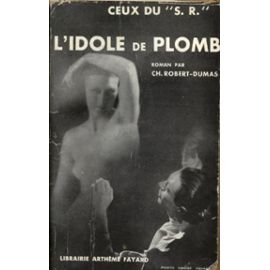Posted: May 11th, 2014 | 1 Comment »
I blogged recently on the excellent book from Timothy Brooks’s Mr Selden’s Map of China – you can now see the map, till June, at Hong Kong’s Maritime Museum…
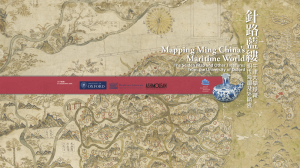
In 1659, a vast and unusual map of China arrived in the Bodleian Library, Oxford. It was bequeathed by John Selden, a London business lawyer, political activist, former convict, MP, and the city’s first Orientalist scholar. Largely ignored, it remained in the bowels of the library, until called up by an inquisitive reader. When Timothy Brook saw it in 2009, he realized that the Selden Map was “a puzzle that had to be solvedâ€: an exceptional artefact so unsettlingly modern-looking it could almost be a forgery. But it was genuine,
Posted: May 10th, 2014 | No Comments »
In the winter of 2012-13 BICC collaborated with Dr Weipin Tsai (Royal Holloway University of London), and Professor Hans van de Ven (Cambridge) on a project to restore the decrepit gravestone of Sir Robert Hart and Hester, Lady Hart. The Harts are buried in Bisham, near Marlow, yards from the bank of the River Thames. The initiative culminated in a rededication ceremony held in the churchyard on a cold February day in 2013.
A new 31 minute film, ‘For China and the World’, documents this process, and explores the story and legacy of Robert Hart, who for six decades led China’s Imperial Maritime Customs service. With narration by Tim Pigott-Smith.

Posted: May 10th, 2014 | No Comments »
Robert Bickers may well walk away with best China title for 2014 with Getting Stuck in for Shanghai: Putting the Kibosh on the Kaiser from the Bund I reckon.
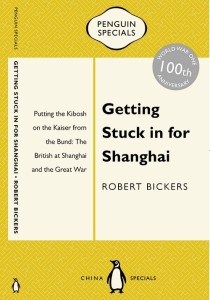
Posted: May 9th, 2014 | No Comments »
Dr Julia Lovell
Birkbeck, University of London
Â
Â
Â
“The Uses of Foreigners in Communist Chinaâ€
Friday 9 May 2014 at 5.30pm
Â
Gustave Tuck Lecture Theatre
University College London
Julia Lovell is senior lecturer in modern Chinese history and literature at Birkbeck College, University of London. She is the author of three books on modern China, most recently The Opium War: Drugs, Dreams and the Making of China (2011), which won the 2012 Jan Michalski Prize. Her several translations of modern Chinese fiction include Han Shaogong’s A Dictionary of Maqiao (winner of 2011 Newman Prize for Chinese Literature), Zhu Wen’s I Love Dollars, Zhang Ailing’s Lust, Caution and Lu Xun’s The Real Story of Ah-Q, and Other Tales of China. She is currently working on a global history of Maoism, and on a new, abridged translation of Journey to the West.
Posted: May 8th, 2014 | No Comments »
Chinese Looks covers everything from Yellow Face to qipaos….
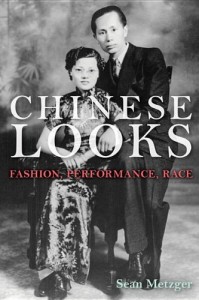
From yellow-face performance in the 19th century to Jackie Chan in the 21st, Chinese Looks examines articles of clothing and modes of adornment as a window on how American views of China have changed in the past 150 years. Sean Metzger provides a cultural history of three iconic objects in theatrical and cinematic performance: the queue, or man’s hair braid; the woman’s suit known as the qipao; and the Mao suit. Each object emerges at a pivotal moment in US-China relations, indexing shifts in the balance of power between the two nations. Metzger shows how aesthetics, gender, politics, economics, and race are interwoven and argues that close examination of particular forms of dress can help us think anew about gender and modernity.
Posted: May 7th, 2014 | No Comments »
Asia House Bagri Foundation Literature Festival
John Everard – Only Beautiful Please: A British Diplomat in North Korea
Paul French – North Korea – State of Paranoia
With Charles Scanlon – the BBC’s East Asia Editor
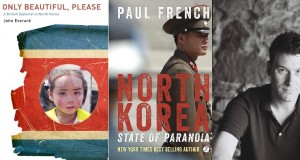
North Korea is a country that continues to make headlines – arousing curiosity and fear in equal measure. Former British diplomat in Pyongyang John Everard and East Asia expert French share their experiences in the country and address important questions about its uncertain future.
John Everard was the British Ambassador in North Korea from 2006 to 2008. While there he dealt with issues such as the 2006 missile and nuclear tests, North Korea’s food shortages, economic problems, and its complex politics. From 2010-11 he was a Pantech Fellow at Stanford University’s Walter H. Shorenstein Asia-Pacific Reseach Centre, where he conducted research and participated in major international conferences on North Korea. From 2011-12 he was coordinator of the UN Panel of Experts on sanctions against North Korea. His distinguished career with the Foreign and Commonwealth Office covered 30 years, spanned four continents, and included other politically sensitive posts such as Ambassador to Belarus and Ambassador to Uruguay. His experiences in North Korea are chronicled in his book Only Beautiful, Please: A British Diplomat in North Korea.
Paul French has lived and worked in China for many years. He is a widely published analyst and commentator, contributing to the China Economic Review, the East Asia Forum Quarterly, Foreign Policy, the Asian Wall Street Journal and other publications. He is the author of Midnight in Peking and the series editor of Zed Books’ Asian Arguments series and the Royal Asiatic Society-Hong Kong University Press China Monographs.
They will be speaking to Charles Scanlon, BBC’s East Asia Editor. He was BBC Korea correspondent from 1994-97 and Japan and Korea correspondent from 2000-07.
7 May 2014 18:45
Asia House
63 New Cavendish St London, W1G 7LP
Booking – click here

Posted: May 6th, 2014 | No Comments »
The discovery of eighteenth century Chinese wallpaper buy conservators at Woburn Abbey is now the subject of an exhibition…Peeling Back the Years. The exhibition covers Woburn’s two distinct periods of Chinoiserie in both the house and garden. The recently discovered mid-18th century wallpaper fragments in the family, private and State apartments were amongst the earliest Chinese wallpapers made for the European market, and have not been seen since these rooms were redecorated in the late-18th/early-19th centuries. The second wave of Chinoiserie decoration in the early-19th century shows how taste and designs changed.
More on the long lost wallpaper here

Chinese white male pheasant on a rock amongst tree peonies; detail from Chinese wallpaper, 1752
Posted: May 5th, 2014 | No Comments »
I’ve blogged here about Yellow Peril fiction before, mostly British, but here’s a French Yellow Peril genre shocker that’s been largely forgotten but that does show how long running the genre was. Charles Robert-Dumas’s 1935 novel L’idole de Plomb (The Lead Idol) concerns a Mongolian who just happens to be a Bolshevik agent, a thug and a political fanatic. His specialty is slicing open the bellies of his adversaries in Paris hotel rooms. He’s ruthlessly stealing French military secrets to sell to the Germans and just happens to also be a chemist and inventor of a vapour (miasmic yellow clouds of death images invoked here!) called (presciently given 1990s drug culture) “Ecstasy 136”. It’s a neat little chemical as it can either kill the entire population of Paris or work as an aphrodisiac on any woman he chooses. Fortunately he hs a weakness – beautiful French women – and one, a French agent, manages to blow his brains out before he can destroy Paris. Yellow Peril and gas often go together in the genre – silent, deadly, fiendish and recently used to terrifying effect in the trenches of World War One.
L’idole de Plomb is a pretty rubbish novel, even by the pretty low standards of the genre but it apparently shifted 27,000 copies in 1935 France, but then it did have some tits on the cover!
